5. The Invasion (2007)
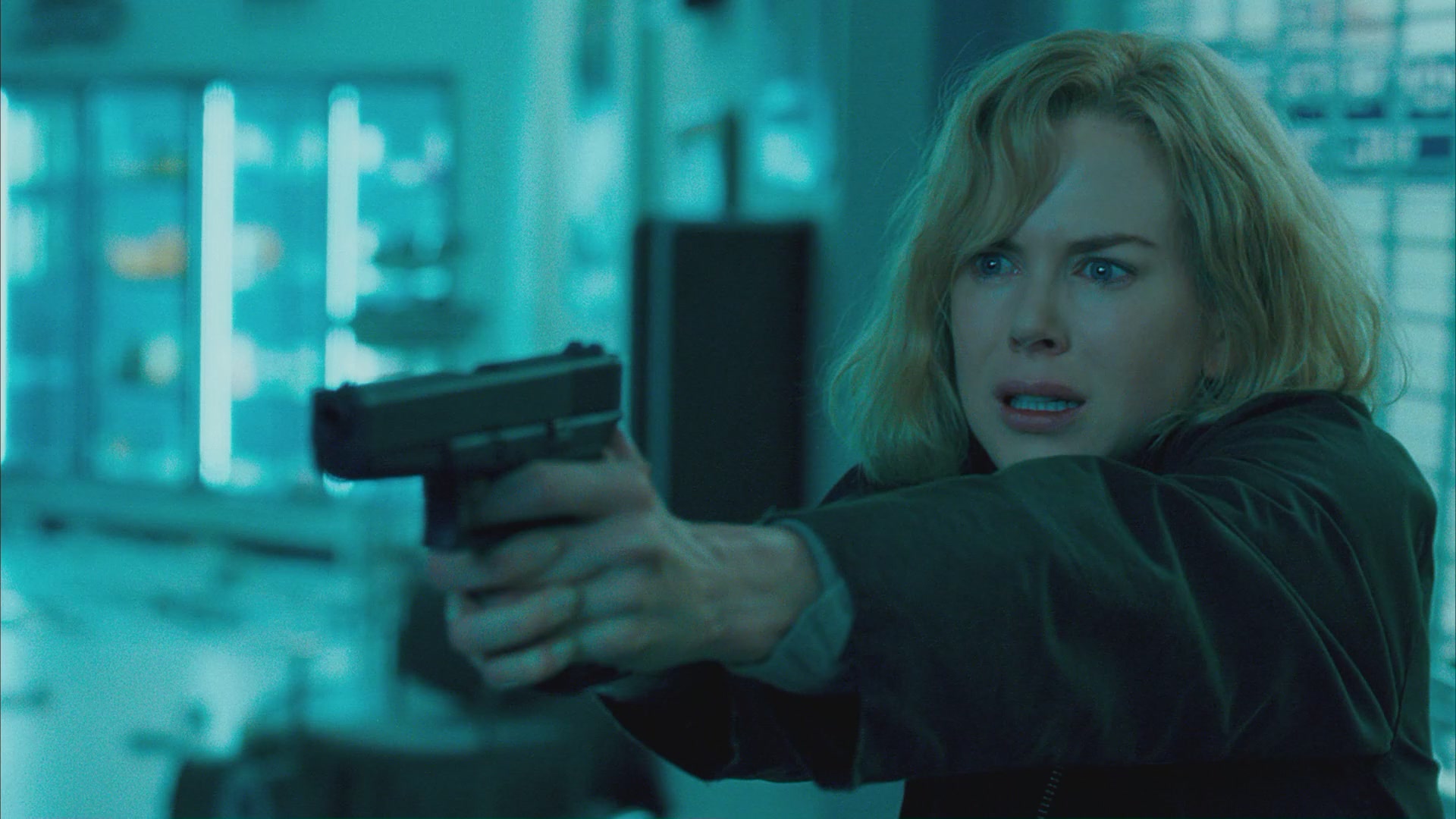
The original Invasion of the Body Snatchers movie from 1956 came at a very difficult time in American history. Thanks to the political situation of the time, when everybody in America was terrified of communism and didn’t know who they could trust, the story of alien invaders coming to Earth and inhabiting the bodies of humans, becoming indistinguishable from your neighbor or your co-worker, resonated very strongly.
Invasion of the Body Snatchers has been read by critics and commentators as everything from an allegory of America’s conformity to McCarthyism to the rumors of brainwashing by Korean forces that came about after the Korean War had ended.
The 2007 remake, starring Nicole Kidman and Daniel Craig, titled simply The Invasion, is a well-made alien invasion movie, but it lacks political subtext. McCarthyism and communism aren’t relevant anymore, but in 2007, the remake could have played on the Bush administration and post-9/11 paranoia. It seems like a missed opportunity in favor of blockbuster appeal.
4. Planet of the Apes (2001)
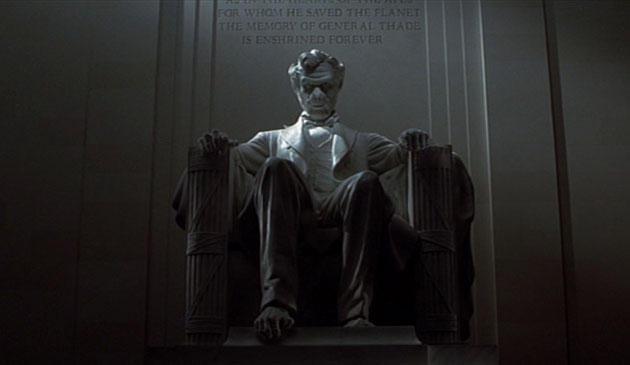
When people think about 1968’s original Planet of the Apes movie, they think about Charlton Heston breaking down on the beach in front of the Statue of Liberty as he realizes that the alien planet he’s been on through this whole movie has actually been Earth all along. It’s one of the most iconic, memorable, and haunting plot twists in film history.
But the film itself is more than just the plot twist. The 1968 Planet of the Apes is a fantastic science fiction movie in its own right that just happens to end with a chilling plot twist. Unfortunately, when Tim Burton was hired to remake it in 2001, he focused too much on the plot twist and not enough on the plot. He assumed people wouldn’t be coming to see a movie – they’d be coming to see a twist. The remake’s problem is that leading up to that twist, it ignores everything that made the original great. It wasn’t just a movie with a great twist ending – it was a great movie with a great twist ending.
Plus, he changes the twist to make no sense. Instead of the hint that the ape planet is Earth through the use of the Statue of Liberty, which was a beautifully unsettling image, Burton’s movie ends with Mark Wahlberg actually leaving in a spaceship and landing on Earth, where all the buildings and streets are the same, except the Lincoln Memorial has an ape on it.
Then a bunch of cops show up, and they’re apes, too. It’s extreme overkill as Burton pounds a nonsensical twist ending into your brain. If anything, the new twist was there to set up a sequel – a sequel that never happened.
It’s a shame that some actors turned down some great roles to be in this schlocky movie. Mark Wahlberg turned down the role that went to Matt Damon in Ocean’s Eleven to star in this thing, while Tim Roth turned down playing Snape in the Harry Potter series to play the villain in this movie. The Planet of the Apes franchise would eventually be rebooted successfully with the prequel trilogy, but this remake was an unnecessary misfire.
3. RoboCop (2014)
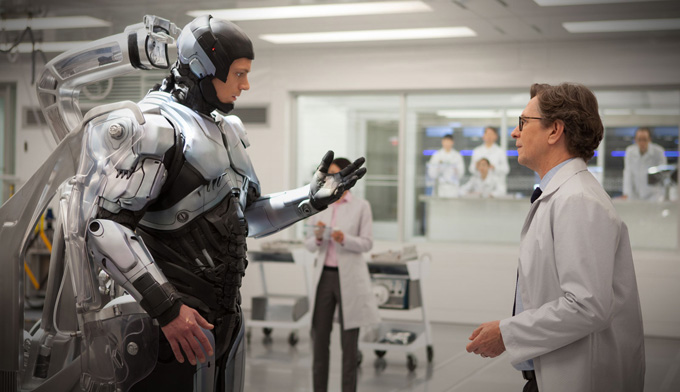
The original 1987 RoboCop movie, directed by Paul Verhoeven, was a scathing satire of corporate culture – they want us to feel safe and protected by them when they are the ones posing the most threat to us. The movie also tackles privatization of public services, consumer demand, and authoritarian government. There are a lot of themes and lofty ideas at play in the subtext.
The 2014 reboot of the franchise, starring Joel Kinnaman, ditched the biting satirical themes in favor of a straight sci-fi action movie. It’s far from generic – the action sequences in the reboot are slick and exciting, and overall, Brazilian director Jose Padilha delivers a smart and well-crafted action movie – but it doesn’t have the contextual depth of the original.
The original movie was also ultraviolent as an ironic jab at the genre, but the reboot is totally bereft of the gore that made the original such twisted fun. The problem with the reboot is the studio’s agenda. They didn’t want to honor the legacy of RoboCop – they wanted to cash in on the superhero movie trend by turning the closest property they had to a superhero into a superhero. This meant a bloodless, humorless, PG-13-rated superhero movie in which Alex Murphy was able to take his helmet off. It wasn’t truly RoboCop.
2. Godzilla (1998/2014)
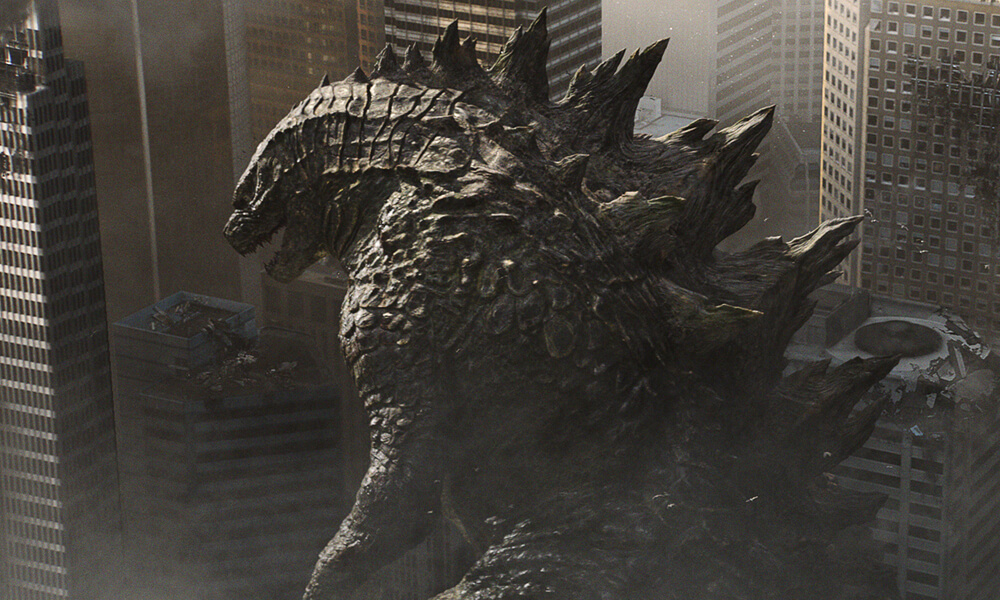
Godzilla – or Gojira, as the original Japanese film was called – has come to be known as a giant monster that goes rampaging through cities, tearing down skyscrapers in its path, while the people down below flee in terror. That’s what all the Hollywood remakes have been about. However, there was originally a deeper meaning attached to this narrative. The monster was there for a reason.
It was 1954, less than ten years after the United States had dropped nuclear bombs on the Japanese cities of Nagasaki and Hiroshima. Everyone in Japan still remembered those horrific events and were terrified of nuclear radiation permeating through their country. Gojira was Japan’s cinematic response to that. The monster in the original movie is a prehistoric sea creature who is given the ability to walk out of the ocean and destroy Tokyo by nuclear radiation from a hydrogen bomb.
The message at the end of the film, as revealed by Yamane, is very anti-nuclear arms coming from a country that had just suffered from two devastating nuclear strikes. Gojira was a cautionary tale about the destructive impact of nuclear weapons, and although there is a tense nuclear arms race with North Korea taking place right now, at the same time that Godzilla is the star of a Hollywood franchise, those movies are completely ignoring the subliminal metaphors.
1. Psycho (1998)
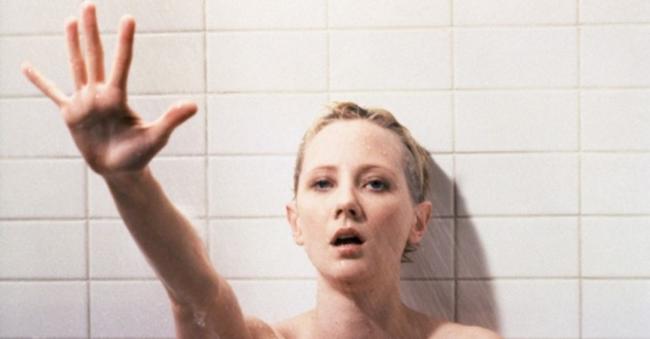
For God knows what reason, in 1998, Gus Van Sant decided to make a shot-for-shot remake of Alfred Hitchcock’s seminal 1960 horror masterpiece Psycho, except in color instead of black-and-white. Some would call it an interesting experiment. Others would call it a pointless experiment.
The problem is that Van Sant was not remaking Psycho from an artistic point of view; rather, he was remaking it from a technical point of view. He copied all the camerawork, the editing, the lighting, the script, the score – he didn’t make any artistic decisions of his own.
With Van Sant making a remake in the most literal sense of the word (as in “to make again”), he couldn’t see the wood for the trees. Hitchcock slaved over that shower scene in the editing room for days, cutting and snipping to make sure the suspense and the terror of the scene were just right. Van Sant just replicated that, instead of slaving over his own version of it. And if he did that because he thought Hitchcock’s movie couldn’t be improved on, then why remake it at all?
Van Sant focused on all the wrong things by making a painstaking shot-for-shot remake of Psycho in color, while failing to add any emotional depth or question any of Hitchcock’s decisions, resulting in a completely hollow movie.